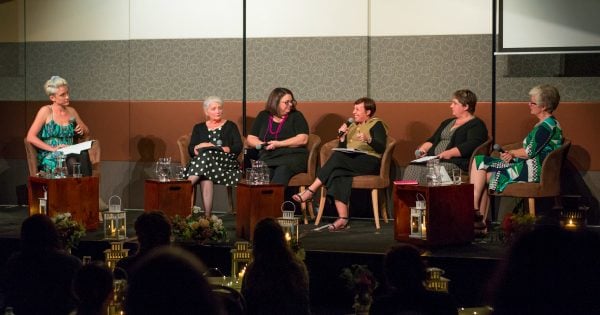This story deals with pregnancy loss and infant death. If you are in need of support, please call Sands Australia’s 24-hour national helpline on 1300 072 637.
Amy Banson works in a space where birth meets death. As a bereavement doula, she has exclusively dedicated herself to women who experience stillbirth or the loss of their newborn.
“The way that I work with families is to be a support person from the moment they experience a baby bereavement or discover a fatal diagnosis,” the 34-year-old told Mamamia. “That involves whatever they need at the time; so maybe going into hospital to speak with the parents, or being a support person to those already within their network.
“I help them understand what the situation is, what their options are.”
A very raw Monique Bowley speaks about miscarriage, grief, and how friends and family can help someone who is struggling.
Clients normally come to to Banson via word of mouth, and while her role may involve weeks, even months, of support – from advising loved ones on how to help, to organising memorials and keepsakes – she says it’s in the birthing room that bereavement doulas have the most impact.
Critical to this is helping the mother focus on each step in isolation. In labour, for example, it’s all about welcoming.
“We’re not farewelling baby just yet, we’re not talking about what’s going to happen afterwards. We’re just focusing on welcoming your baby, because you’re about to be a mother,” the mother of three said. “And that language is really important. Because a lot of women [who’ve experienced bereavement] later question whether they can call themselves a mother, whether they can say they’ve had a child or given birth.
“A lot of stuff like that can come further down the track, and we try to affirm it right then and there in the birthing room.”






























































































